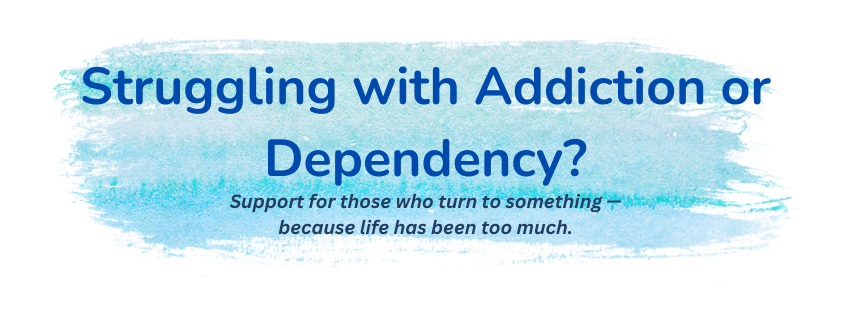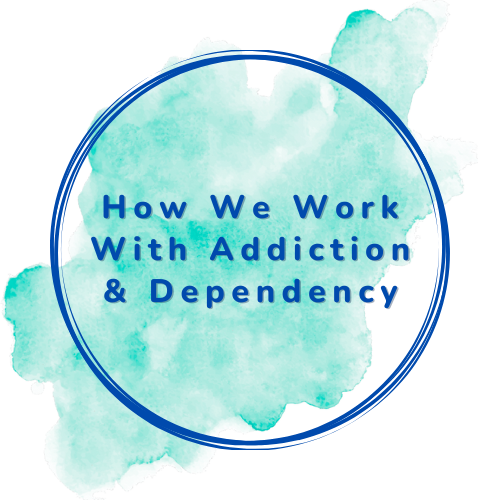
Many of us develop ways of coping that start out as helpful – a way to soothe, escape, or simply get through. Over time, these patterns can begin to take up more space than we intended. What once felt like a lifeline may now feel like a burden – something we rely on, even when it no longer serves us.
At The Surrey Centre, we support people navigating both addiction and dependency – whether it’s alcohol, drugs, gambling, sex, porn, food, shopping, or another behaviour that’s become hard to live with, or live without.
We don’t label or shame. We begin with curiosity.
Not “what’s wrong with you?” but what’s happened – and what needs care now?

- Feeling stuck in patterns you can’t seem to shift, even when you’ve tried
- Thoughts or behaviours that feel out of your control
- Using something to cope — even when it no longer feels like it helps
- Shame, secrecy, or self-criticism around how you’re managing
- Emotional or relational strain linked to the behaviour
- Disconnection from yourself or others, or fear of being “found out”
- Struggles at work, at home, or financially
- Cycles of stopping, slipping back, and feeling like you’ve failed
- Exhaustion from trying to manage it all on your own

If you’re wondering whether something you’re turning to (e.g. a substance, a habit, or a behaviour) may have become something you’re depending on, these questions may help you listen inward:
Do I find myself thinking about it often — when, where, or how I’ll get it?
Do I use or engage with it alone — even when I don’t want to?
Do I hide, minimise, or feel the need to explain how much I’m using or doing it?
Do I turn to it in moments of stress, sadness, overwhelm, or emotional pain?
Do I feel defensive, uneasy or ashamed when someone asks me about it?
Do I feel a sense of secrecy or self-judgement around it?
Has it begun to affect my relationships, work, wellbeing or presence?
Have I tried to stop — but found myself pulled back again?
Would the idea of letting go feel overwhelming, or even frightening?
These questions aren’t a test — they’re quiet openings to reflect on how you’re living, coping, and feeling within yourself.
If you find yourself saying yes to even one or two, it may be a gentle sign that something within you is asking to be met with care. That alone is a meaningful place to begin.

We approach this work with a whole-person, soul-aware perspective — not focused solely on the behaviour, but gently attuned to what lives beneath it: pain, protection, survival, and the longing to feel safe or connected.
Together, we may:
- Explore the emotional or relational roots of your coping strategies — and the roles they’ve played in your life
- Bring awareness to nervous system patterns and internal triggers
- Work with the shame, secrecy or self-judgement that may have grown around the behaviour
- Strengthen your capacity to self-soothe, stay connected, and make different choices when you’re ready
- Use creative approaches — through image, metaphor, movement or symbolic objects — when words aren’t enough
- Integrate psychiatric or medical support if helpful, and always with your consent
There is no one-size-fits-all path.
You set the pace. We walk with you.

Whatever brought you here – we see your strength. We understand how easy it is to believe that the behaviour is the problem. But so often, it’s a response to what has never been held, heard, or healed.
You don’t have to carry it alone.
We’re here when you’re ready.
